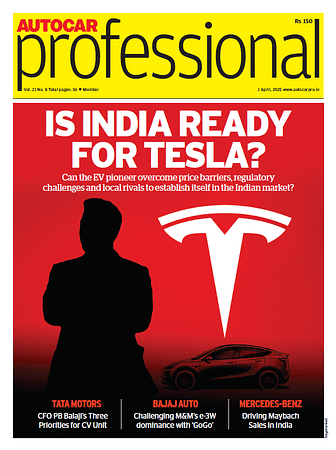Ford and Heinz explore use of tomato fibre to develop sustainable materials
It might seem that tomatoes and cars have nothing in common.
It might seem that tomatoes and cars have nothing in common. But researchers at Ford Motor Company and H J Heinz Company, one of the world’s leading marketers and producers of foods specialising in tomato ketchup and sauces, see the possibility of an innovative union.
Researchers at Ford and Heinz are investigating the use of tomato fibres in developing sustainable, composite materials for use in vehicle manufacturing. Specifically, dried tomato skins could become the wiring brackets in a Ford vehicle or the storage bin a Ford customer uses to hold coins and other small objects.
“We are exploring whether this food processing byproduct makes sense for an automotive application,” said Ellen Lee, plastics research technical specialist for Ford. “Our goal is to develop a strong, lightweight material that meets our vehicle requirements, while at the same time reducing our overall environmental impact.”
Nearly two years ago, Ford began collaborating with Heinz, The Coca-Cola Company, Nike Inc. and Procter & Gamble to accelerate development of a 100 percent plant-based plastic to be used to make everything from fabric to packaging and with a lower environmental impact than petroleum-based packaging materials currently in use.
At Heinz, researchers were looking for innovative ways to recycle and repurpose peels, stems and seeds from the more than two million tons of tomatoes the company uses annually to produce its best-selling product: Heinz Ketchup. Leaders at Heinz turned to Ford.
“We are delighted that the technology has been validated,” said Vidhu Nagpal, associate director, packaging R&D for Heinz. “Although we are in the very early stages of research, and many questions remain, we are excited about the possibilities this could produce for both Heinz and Ford, and the advancement of sustainable 100 percent plant-based plastics.”
In recent years, Ford says it has increased its use of recycled nonmetal and bio-based materials. With cellulose fibre-reinforced console components and rice hull-filled electrical cowl brackets introduced in the last year, the automaker’s bio-based portfolio now includes eight materials in production. Other examples are coconut-based composite materials, recycled cotton material for carpeting and seat fabrics, and soya foam seat cushions and head restraints.
RELATED ARTICLES
US tariffs will hurt both automakers and US manufacturing: ACEA
European Automobile Manufacturers’ Association says that the EU and the US must engage in dialogue to find an immediate ...
Trump levies 25% tariff on all cars imported to US
President Donald Trump claims new levy on all cars and car parts shipped into the country will create "tremendous growth...
Hyundai opens its third factory in the US: Metaplant America
Hyundai Motor Group Metaplant America's vehicle assembly and battery plant is the key pillar of the Hyundai Motor Group’...






 11 Jun 2014
11 Jun 2014
 3724 Views
3724 Views





 Autocar India
Autocar India




